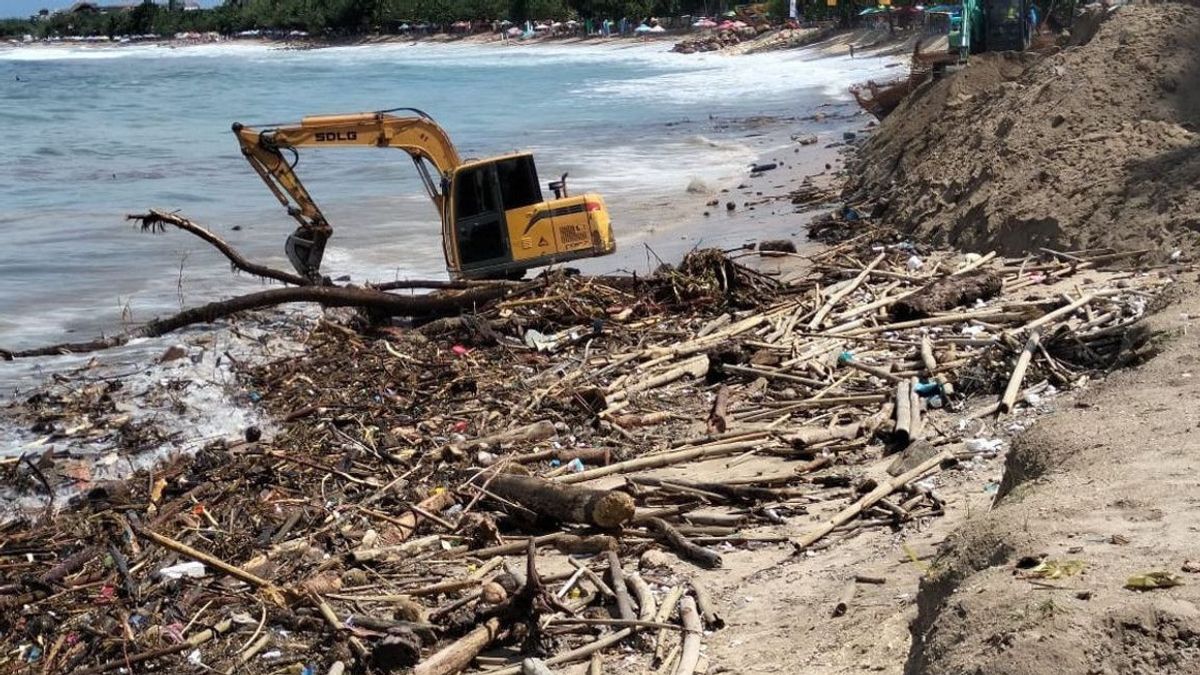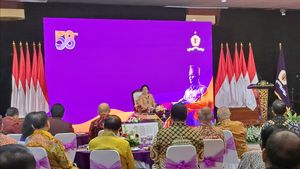MAKASSAR - Secretary of the Directorate General of Marine Space Management, Ministry of Maritime Affairs and Fisheries Dr Kusdiantoro said 50 percent of plastic waste originating from land entered the sea.
"Observing this condition, it is necessary to handle plastic waste not only in the sea but also in the downstream or on land," said Kusdiantoro at the Seminar on Sustainable Products for Waste Processing and its Impact on Indonesian Hayati Diversity, quoted by ANTARA, Saturday, May 20.
He said the threat of plastic waste in the sea was very dangerous, because it could cover tourist areas and affect the environment under the sea.
This includes threatening the presence of nano or microplastic content in fish that can interfere with human health.
Regarding these problems, he continued, KKP has 5 priority programs, including expanding the city-based measurable marine fishing conservation area and developing coastal cultivation.
Handling the waste problem, he continued, especially the regulation on the handling of plastic waste refers to Law No. 18 of 2008 concerning Waste Management.
While the strategy is through security and supervision, and mitigation through the younger generation and mothers in campaigning for the importance of saving the environment.
VOIR éGALEMENT:
"Pan campaigning not to throw plastic waste on land, because some of them ended up running into the sea," he said.
Therefore, Kusdiantoro appealed to all parties to build a strategy to increase public awareness, stop waste from entering the sea, clean up trash at sea, monitor, supervise and enforce the law.
The English, Chinese, Japanese, Arabic, and French versions are automatically generated by the AI. So there may still be inaccuracies in translating, please always see Indonesian as our main language. (system supported by DigitalSiber.id)













